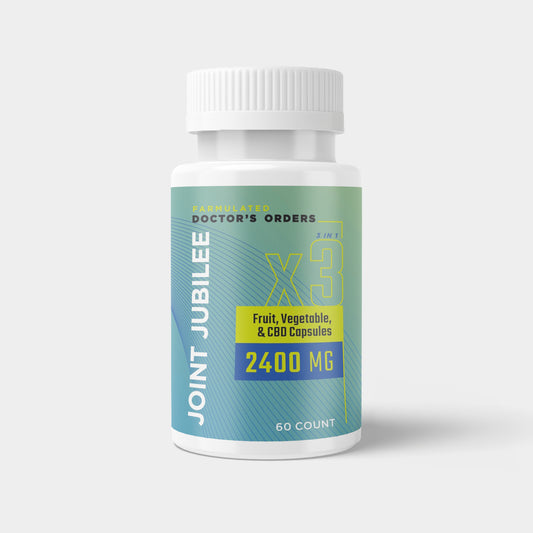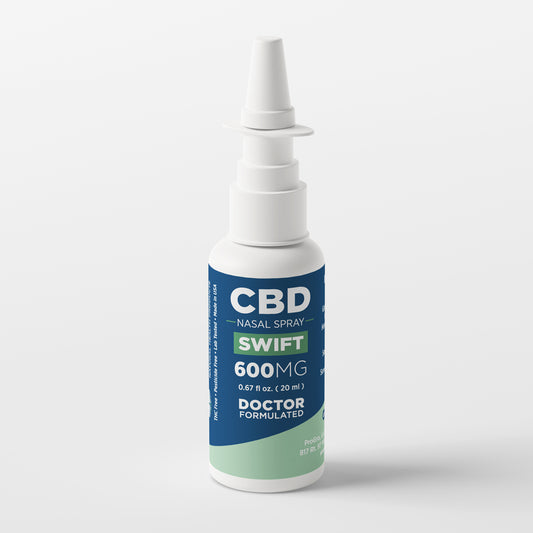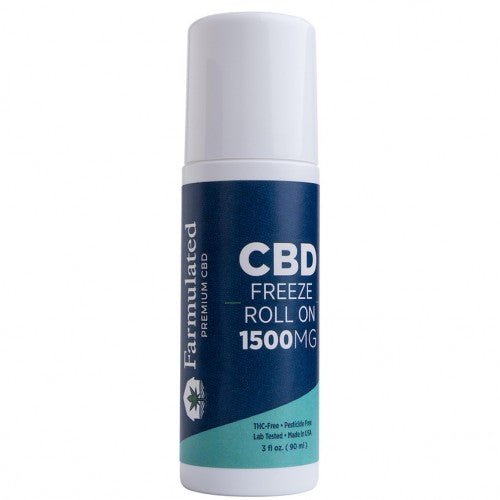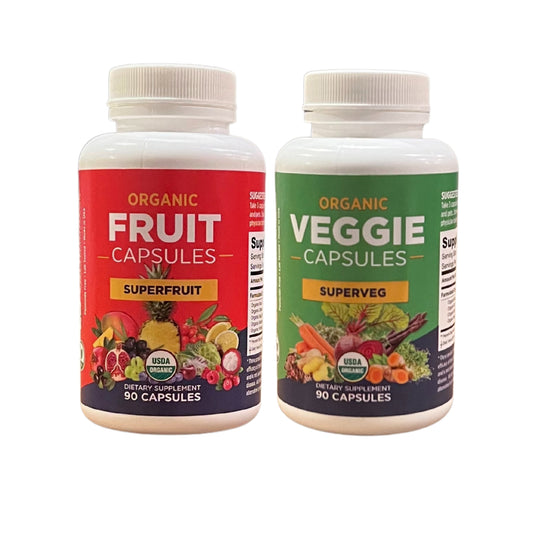Your brain: It’s the powerful organ inside your skull that continuously feeds you sensory information to process the world around you while regulating all systems of your body, among billions of other small but critical tasks. While most of us are familiar with what it means to have a healthy body, we may question what health means when explicitly examining a structure as multifaceted as the brain. To find out, we called up Pharmacist and Natural Wellness Expert Gina Ruffa to learn more about how the brain functions, what nutrients it needs to thrive and how substances like CBD may contribute to better brain health.
Farmulated CBD: How does our brain health compare to our whole-body health?
Gina: Our brain weighs about three pounds yet consumes approximately 25 percent of our body’s energy. It’s the gray matter between our ears, which is the processing system of our entire bodies.
There is something called the glymphatic system, which is a waste clearance system in our central nervous system similar to the lymphatic circulatory system. It’s basically an immune system comprised of glial cells that helps maintain brain health, just as the lymphatic system maintains our immune functioning.
And what does it really mean to have a healthy brain?
To have a healthy brain is to have an uninflamed brain, and so many things contribute to neuroinflammation. In the past we’ve discussed how the gut is closely related to the brain, and an unhealthy gut equals an unhealthy brain. In fact, 80 percent of our serotonin production occurs in our gut, which exemplifies what I always say: “Your mood follows your food.”
As a refresher, what types of foods should consumers prioritize for optimal brain health?
Omega-3s, fermented foods and pre- and pro-biotics are so important. Nutritional psychiatry also shows us that gluten-free grains are better for you. Fruits like berries are incredibly healthy for your brain as they are loaded with antioxidants for protection from so many diseases, including diseases of the brain.
Overall, the focus needs to be on anti-inflammatory foods and supplements, which is where CBD comes into the picture. CBD’s anti-inflammatory effects can lead to improved concentration, better memory and even has neuroprotective properties.
One of the many reasons we love CBD!
We’ve made significant progress in incorporating mental health into broader health conversations, but diet still tends to be viewed as a secondary measure in this regard. Why do you think there’s still a hesitancy to prioritize a brain-healthy diet?
I think a lot of people aren’t aware of how important dietary measures and nutrition are. There’s insufficient information on the topic. If you become an avid reader of nutrition information, you eventually learn that food is medicine. There is something called the AGE value of food, or Advanced Glycation End Products. The higher the AGE values of the foods you consume, the quicker you age.
Things like candy bars, potato chips and other fried foods obviously have very high AGE values. On the opposite end of the spectrum, plant-based foods have the lowest AGE values. And I’m not just talking about your physical age, but your mental age.
Can you explain what you mean by your mental age?
How well your brain functions in cognitive tasks such as learning, memory and concentration. Brain diseases such as Alzheimer’s are essentially glaucoma of the brain. It’s a vascular disease that strongly correlates to what we eat. The more we can cut down on food-derived inflammation, the more we can reduce the chances of developing common diseases of the brain and beyond.
A good acronym to remember how to optimize your brain health is NEURO, which means Nutrition, Exercise, Unwind, Restorative sleep and Optimize cognitive activity.
Zeroing in on the “N,” or Nutrition, we know foods high in refined sugars promote inflammation throughout the body. But excess sugar is such a hard thing to cut out of our diets, particularly because of its addictive qualities. Can you tell us what happens in our bodies when we eat sugar?
Sugar triggers our dopamine receptors, which are a feel-good neurotransmitter, and anything that triggers dopamine production triggers addiction. Just as social media gives us a rush of dopamine when we’re scrolling, sugar gives us that same quick dose of satisfaction. We as humans need dopamine, but dopamine in excess causes paranoia and mental health issues. On top of messing with our brains, sugar also messes with our immune systems and actually feeds cancer cells.
It’s a difficult truth to hear, as sugar is so deeply ingrained in our daily lives. Any advice for people on how to break free from the Standard American Diet and improve our brain health?
Start small. Minimize stress. Exercise, meditate and take adaptogens. Begin by incorporating delicious, fresh herbs into your diet. Things like fresh mint, rosemary, sage and saffron are wonderful for your brain health. Curcumin, the primary component of turmeric, is an easy-to-incorporate spice that increases BDNF, or your brain-derived neurotrophic factor, which leads to improved learning and memory. Then you have caffeinated beverages like green tea, which is not only wonderful for brain health but also for digestion and metabolism. Just add a cup to your morning routine.
Supplements like melatonin are beneficial for the brain as well. Then you need Vitamin D and minerals including magnesium, calcium and lithium. I always say one of the minerals we’ve lost sight of is lithium – it’s anti-aging and eases anxiety and depression.
Very interesting! Beyond its anti-inflammatory properties, where do you see CBD fitting into the brain health conversation?
Emerging research shows there are CB1 and CB2 receptors throughout the body. CB1 receptors are concentrated in the brain; CB2, in the immune system. When we take CBD as a supplement, it helps the brain achieve homeostasis.
There’s also so much potential for CBD to help improve conditions like psychosis, epilepsy and anxiety. It can even help with neurogenesis, or the growth of new brain cells. In truth, the more we uncover the potential of CBD, the greater chance we have to prevent many different brain diseases, which means a happier, healthier brain.
Something we should all strive for! Thank you once again for such an enlightening conversation, Gina.
To learn more about Pharmacist and Natural Wellness Expert Gina Ruffa, visit her website at what-supp.org.





